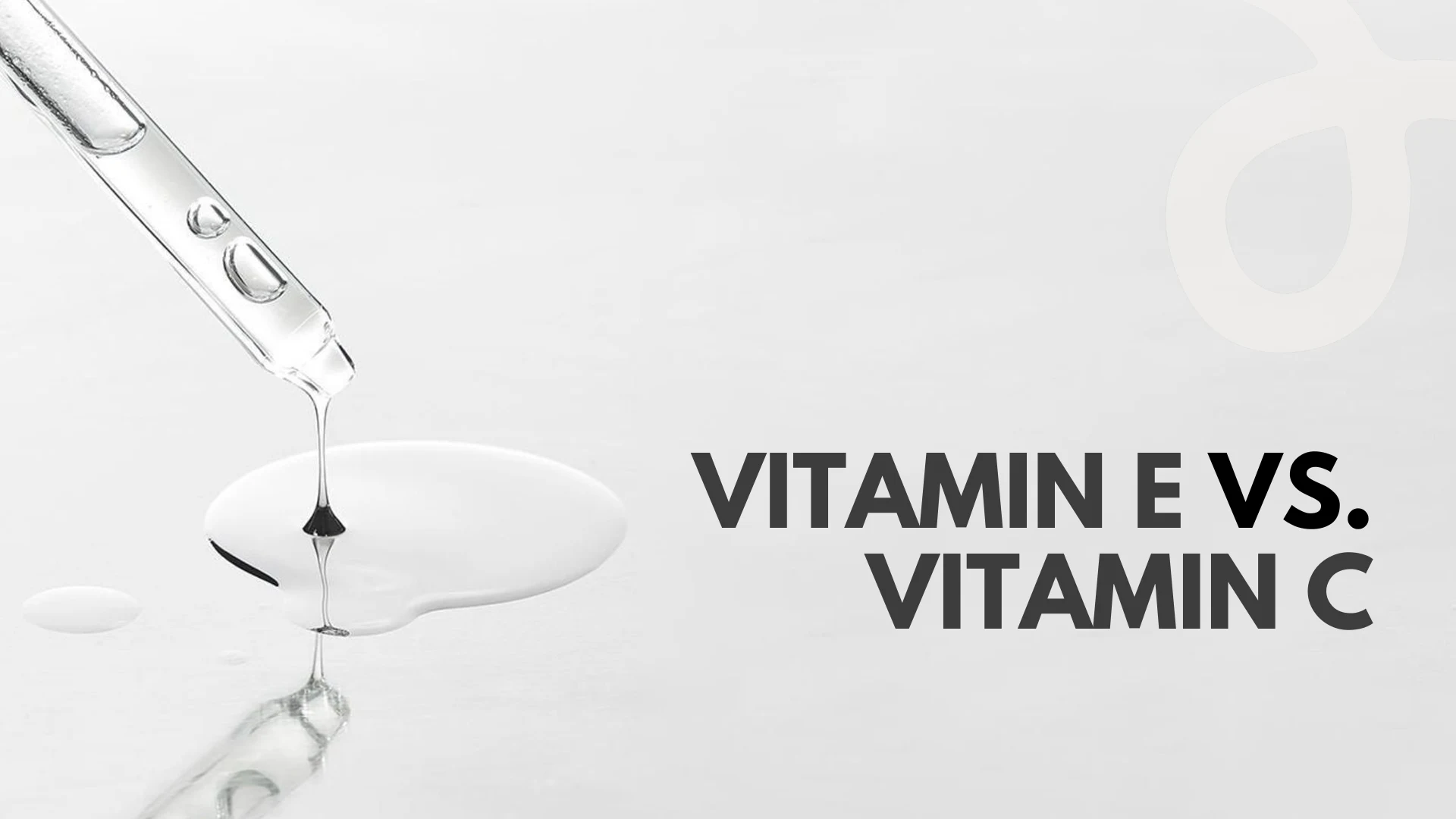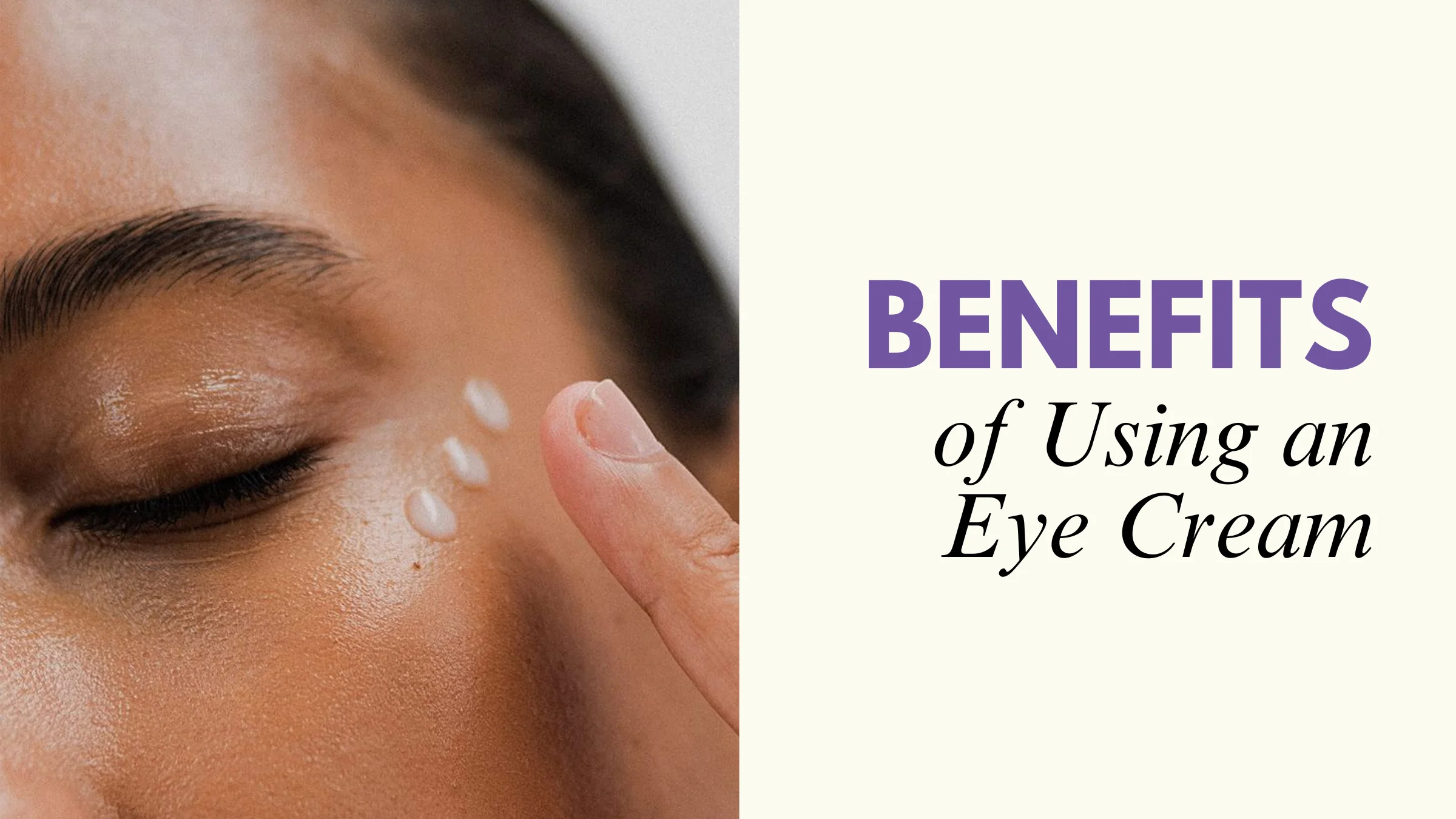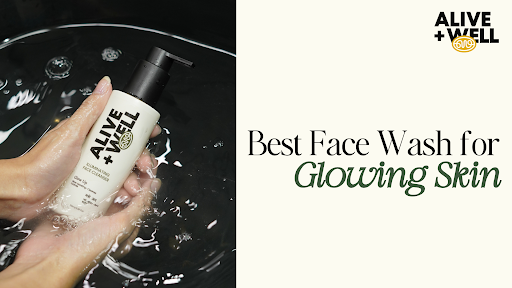Table of Contents
Introduction: The Battle for Radiant Skin
What is Vitamin C?
Vitamin C or Vitamin E – Which Is Better for the Face?
Best Time to Take Vitamin C and E Together
Vitamin E and C for Skin Brightening
Benefits of Vitamin C for Skin
Key Differences Between Vitamin C and Vitamin E
Which Is Better for Skin? A Quick Decision Guide
Using Vitamin C and E Together: The Power Duo
FAQs
Vitamin E vs. Vitamin C – Which One is Better for Skin?
When the need of the hour is radiant and youthful skin, two vitamins stand out from the lot– vitamin C and vitamin E. Although both are powerhouse ingredients, they serve different roles in skincare. Let’s dig deeper to find out which one is better for your skin.
What is vitamin C?
Vitamin C AKA ascorbic acid, is a water-soluble antioxidant and a staple ingredient in modern skincare. Most common form of vitamin C found in skincare are L ascorbic acid ( most potent )and Ethyl Ascorbic acid ( most stable). When applied topically, vitamin C works as an ultimate brightening agent by fading dark spots and hyperpigmentation, giving the skin a more even and radiant tone.
Vitamin C or vitamin E which is better for face
Both Vitamin C and Vitamin E offer powerful benefits for skin health, but they serve different purposes and work best when used together. If you’re deciding between the two, it depends on your skin concerns.
Vitamin C is a potent antioxidant known for brightening the skin, fading hyperpigmentation, and stimulating collagen production. It helps protect the skin from environmental damage caused by sun exposure and pollution. Ideal for dull, uneven skin tone or early signs of aging, Vitamin C is often recommended for those struggling with dark spots or sun damage.
Vitamin E, on the other hand, is more focused on moisturizing and healing. It’s excellent for dry or sensitive skin, helping to repair the skin barrier and reduce inflammation. Vitamin E is also an antioxidant, but it’s oil-soluble, making it more suitable for use in hydrating, soothing products.
In short:
Choose Vitamin C if you want to brighten your skin, reduce dark spots, or fight pollution damage.
Choose Vitamin E if your focus is on hydration, skin repair, or calming irritation.
Best time to take vitamin C and E together
The best time to take Vitamin C and Vitamin E together depends on your health goals, but generally:
🕒 For Overall Health and Immunity:
Take them in the morning with breakfast.
Both vitamins are antioxidants and work well together to protect your body from oxidative stress throughout the day.
Taking them with food (especially some fat, for Vitamin E) helps absorption.
🕒 For Skin Benefits:
Topical use: Apply Vitamin C in the morning to protect against sun and pollution, and Vitamin E at night to nourish and repair.
Oral supplements: Taking them together once daily with a meal is effective and safe.
✅ Tips:
Avoid taking them on an empty stomach (Vitamin E is fat-soluble and needs dietary fat).
If you’re using supplements, follow the dosage on the label or as directed by a healthcare provider.
Vitamin E and C for Skin Whitening
fade dark spots, and promote a brighter, more even complexion—often referred to as “skin whitening” in skincare contexts.
🌟 How Vitamin C Helps Skin Brightening:
Inhibits melanin production, reducing hyperpigmentation and dark spots
Boosts collagen production, improving overall skin texture and tone
Protects against sun-induced skin darkening and pollution
🌿 How Vitamin E Contributes:
Moisturizes and nourishes the skin, making it healthier and more radiant
Helps repair damage and reduce the appearance of scars or discoloration
Enhances the stability and effectiveness of Vitamin C when used together
🔬 Why Use Them Together?
Vitamin E stabilizes Vitamin C, making it more effective and longer-lasting
Combined, they offer enhanced antioxidant protection and better results in fading pigmentation and dullness
🕒 How to Use for Skin Brightening:
Topical use: Apply a Vitamin C serum in the morning and a Vitamin E-rich cream at night.
Oral supplements: Take with a meal once daily, preferably under medical supervision.
These vitamins won’t “bleach” skin but will brighten and even out your natural tone, reducing dullness and dark spots safely over time.
Benefits Of Vitamin C For Skin
- Brightens Complexion: Vitamin C is widely renowned for its ability to diminish dark spots, hyperpigmentation, and even out skin tone, revealing a radiant, glowing complexion.
- Boosts Collagen Production: It supports collagen synthesis, which helps to keep skin firm, reduce fine lines, and prevent sagging.
- Fights Free Radicals: Acting as a potent antioxidant, vitamin C neutralizes free radicals caused by environmental stressors like pollution and UV rays, protecting skin cells from damage and premature ageing.
- Aids Sun Protection: Vitamin C goes hand in hand with SPF to enhance skin defense against sun-induced damage such as inflammation, pigmentation, and premature ageing
- Reduces Redness and Inflammation: With Its anti-inflammatory properties, vitamin C calms irritated and compromised skin, making it a great choice for acne-prone or sensitive skin.
- Improves Skin Texture: With consistent use, vitamin C can smooth the skin’s surface by combatting signs of ageing like fine lines and wrinkles, enhancing overall skin texture.
Key Differences Between Vitamin C and Vitamin E
While both vitamins share a fair share of similarities like their antioxidant protection. They serve different functions and work best under specific skin conditions.
Feature | Vitamin C | Vitamin E |
Solubility | Water-soluble | Fat-soluble |
Texture | Lightweight, non-oily | Rich, slightly heavier |
Targeted Concerns | Dullness, pigmentation, ageing | Dryness, sensitivity, inflammation |
UV Protection | Supports sun protection when used with SPF | Helps neutralize UV-induced free radicals |
Collagen Production | Yes | No |
Compatibility | Oily, combination, normal | Dry, sensitive, mature |
Time of Use | Both AM or PM | Preferably PM |
Which Is Better for Skin?
- Choose Vitamin C
If you want brighter and spotless skin with reduced pigmentation, and anti-ageing benefits. It’s ideal for people dealing with dullness, uneven skin tone - Choose Vitamin E
If you have dry and flaky skin which demands intense hydration. Additionally, individuals having sensitive or reactive skin who want to repair skin barriers can choose Vitamin E. - Choose Both
If you want ultimate protection and nourishment, using them together gives you maximum antioxidant power for a brighter, nourished and healthier skin. Even studies suggest that both Vitamin C and E are highly effective depigmenting agents.
Vitamin C and Vitamin E are the ultimate antioxidant duo in the skincare world—each their distinct strengths. Vitamin C is a brightening superhero that fades pigmentation and uneven skin. If your skin craves deep moisture and barrier support, Vitamin E is your ride or die. Although Both deliver impressive results separately but together they are unstoppable—delivering radiant, resilient, and healthy skin for the long term.
FAQ
Is vitamin C better than E?
While vitamin E reigns supreme as the moisture-locking champion for soft, smooth skin, vitamin C is the ultimate glow-getter for a radiant complexion.
Can I use vitamin C and vitamin E together?
Yes, you can safely use vitamin C and vitamin E together in your skincare routine. In fact, they complement each other, enhancing their individual benefits and overall antioxidant protection.
Which is the best vitamin E or C?
Vitamin C is more powerful for collagen production and minimising wrinkles and sagging skin. However, vitamin E better prevents future collagen breakdown by neutralising free radicals in cell membranes and skin lipids. Using both maximises anti-ageing action.
Does vitamin E tighten skin?
While Vitamin E can improve skin health and reduce the appearance of wrinkles, it’s not a direct skin-tightening agent. It’s a powerful antioxidant that protects skin from damage and can help improve overall skin texture and elasticity.
Does vitamin C remove tan?
While Vitamin C doesn’t directly “remove” a tan in the way a chemical peel might, it can help lighten and even out the skin tone caused by sun exposure by reducing hyperpigmentation and brightening the skin.
Which vitamin is good for skin whitening, C or E?
Yes, vitamin C is known for its skin-brightening properties. It helps reduce hyperpigmentation and dark spots, leading to a more even and radiant complexion.
Is vitamin E or C good for hair?
Vitamin E is good for hair because it helps improve the hair’s overall strength. It is rich in antioxidants that help reduce oxidative stress and resist the effect of free radicals on the hair cells.
Can vitamin E remove dark circles?
Yes, Vitamin E can help reduce the appearance of dark circles due to its antioxidant and moisturizing properties.
Can we apply vitamin E capsule daily on face?
Yes, applying Vitamin E capsules to the face can be beneficial for many, but it’s important to consider your skin type and use it cautiously.
Who should avoid vitamin C?
Individuals with certain medical conditions, like blood disorders (such as thalassemia, G6PD deficiency, sickle cell disease, and hemochromatosis), should avoid or use vitamin C with caution.



